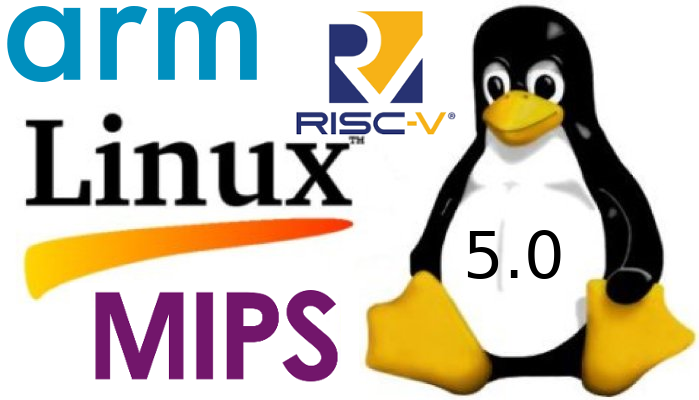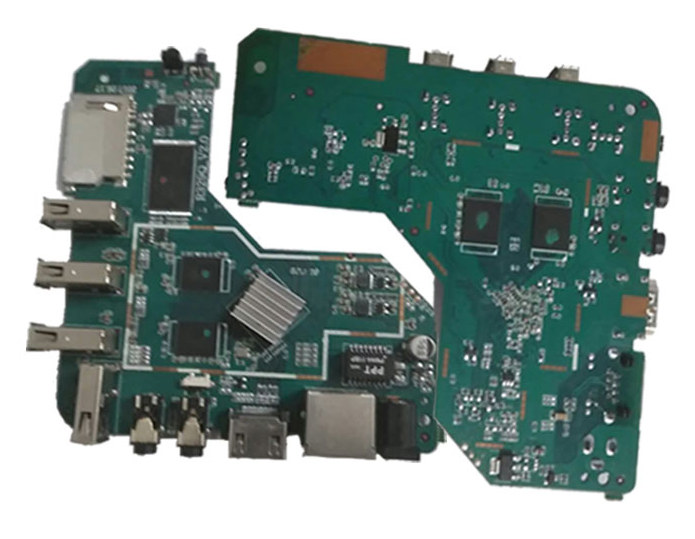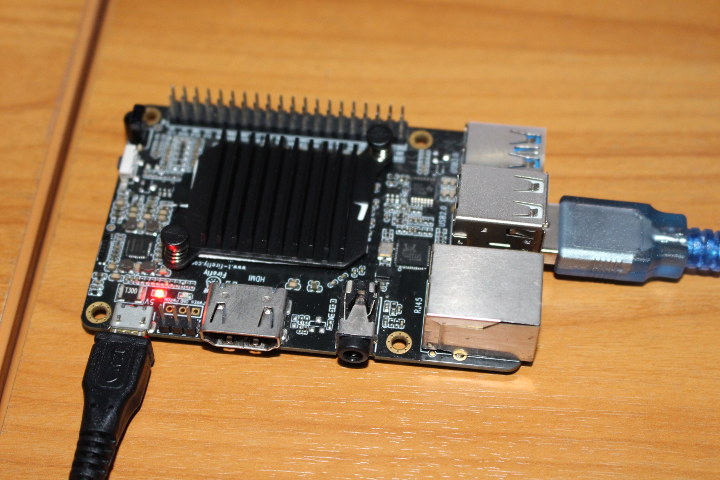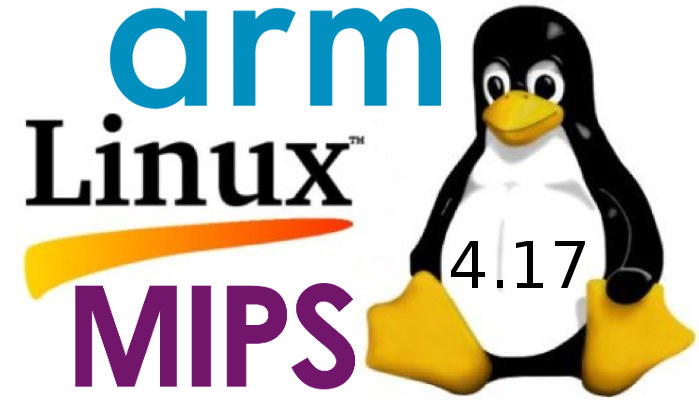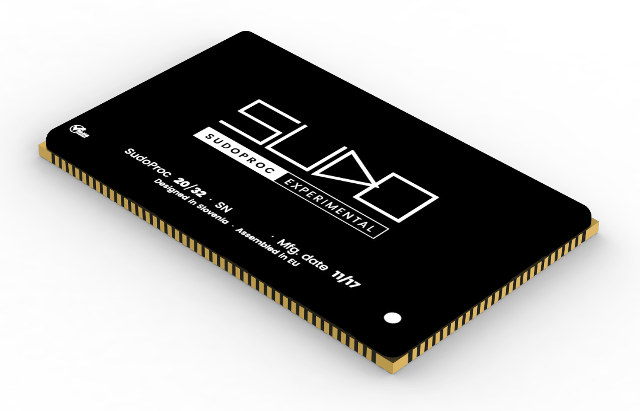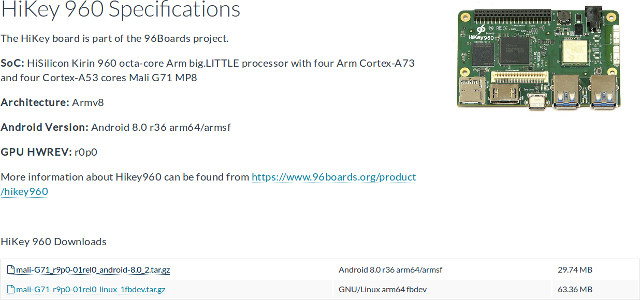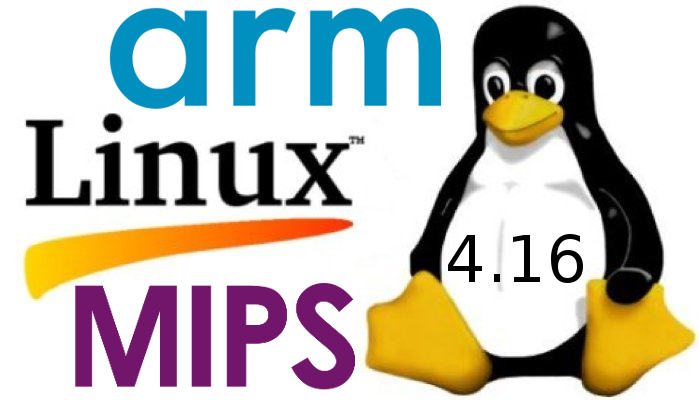Linus Torvalds has just released Linux 5.0: Ok, so the last week of the 5.0 release wasn’t entirely quiet, but it’s a lot smaller than rc8 was, and on the whole I’m happy that I delayed a week and did an rc8. It turns out that the actual patch that I talked about in the rc8 release wasn’t the worrisome bug I had thought: yes, we had an uninitialized variable, but the reason we hadn’t immediately noticed it due to a warning was that the way gcc works, the compiler had basically initialized it for us to the right value. So the same thing that caused not the lack of warning, also effectively meant that the fix was a no-op in practice. But hey, we had other bug fixes come in that actually did matter, and the uninitialized variable _could_ have been a problem with another compiler. Regardless – all […]
Spare TV Box Board Sold for MXQ-4Q / MXQPro DIY Repairs
Once somebody asked me if spare TV box boards were available for purchase since his TV box died after a few months, and he wanted to repair it himself without having to purchase another complete TV box. Usually, such boards are not sold, except maybe on Alibaba, where you may or may not have to purchase in quantities. So I basically told him it would be hard to find, and buying a new or second hand TV box would be a better option. But I was recently made aware that at least one seller was offering spare TV box boards for MXQ-4Q and MXQPro on Aliexpress for $20.61 shipped in order to let people repair their boxes themselves. If your goal is to repair a TV box, I can only think of two reasons for buying a spare TV box board: saving money and/or reducing electronics waste. MXQ-4Q and MXQPro […]
Alfawise A8 RK3229 Android 8.1 TV Box Sold for $29.99 (Promo)
We started to see some Android 8.1 “Oreo” TV boxes a few months ago with MX10 model powered by Rockchip RK3328 processor, but if you don’t mind having a TV box with a 32-bit Arm processor, you can now get an Android 8.1 TV box for a much cheaper price, as GearBest now has a flash sale for Alfawise A8 TV box based on Rockchip RK3229 with a respectable 2GB RAM and 16GB flash, and selling for $29.99 shipped. Alfawise A8 specifications: SoC – Rockchip RK3229 quad core Arm Cortex A7 processor @ 1.5 GHz with ARM Mali-400MP2 System Memory – 2GB DDR3 RAM Storage – 16GB eMMC flash, full size SD slot up to 32GB Video Output – HDMI 2.0 up to 4K2K @ 60 fps & AV port (composite video) Audio – HDMI audio output, AV port (stereo audio), and coaxial S/PDIF output Connectivity – 10/100M Ethernet, 802.11 […]
Flashing Firmware to Rockchip Devices in Linux with rkdeveloptool Open Source Utility
It’s been possible to flash firmware to Rockchip devices in Linux with upgrade_tool command line tool for many years, but the utility is closed-source and only supports “RK Firmware” files that are also used for OTA firmware updates, but not “raw firmware” that you’d flash directly to micro SD cards for example. This week-end as I played with ROC-RK3328-CC board, I encountered some instability issues with micro SD cards, so I instead relied on an eMMC flash module. The only problem was that Firefly Team only releases “raw firmware” files, so I was unable to use upgrade_tool, and instead found out rkdeveloptool open source utility was used to flash raw firmware images in Firefly’s Wiki. The first step is to connect a male to male USB Type A cable (like that one on eBay) between the board and the host computer, and connect a USB power adapter to the board. […]
Linux 4.17 Release – Main Changes, Arm & MIPS Architectures
Linus Torvalds released Linux 4.17 last Sunday: So this last week was pretty calm, even if the pattern of most of the stuff coming in on a Friday made it feel less so as the weekend approached. And while I would have liked even less changes, I really didn’t get the feeling that another week would help the release in any way, so here we are, with 4.17 released. No, I didn’t call it 5.0, even though all the git object count numerology was in place for that. It will happen in the not _too_distant future, and I’m told all the release scripts on kernel.org are ready for it, but I didn’t feel there was any real reason for it. I suspect that around 4.20 – which is I run out of fingers and toes to keep track of minor releases, and thus start getting mightily confused – I’ll switch […]
SudoProc is a Tiny LGA System-on-Module Based on Rockchip RK3288 SoC
Most systems-on-module are designed to be inserted into a baseboard thanks to an edge connectors or one or more board-to-board connectors, although I’ve also seen some with castellated pins allowing them to be soldered to the carrier board. The guys at Sudo Systems LLC have taken a different approach as they went with a custom designed 210-pin LGA (Land grid array) module instead, which is based on Rockchip RK3288 processor, and extremely compact at 65 x 40 x 4.3 mm. SudoProc module specifications: SoC – Rockchip RK3288 quad core Cortex-A17 processor @ up to 1.8 GHz with Arm Mali-T764 GPU System Memory – 4GB LPDDR3 (Samsung) @ 1066MHz; 2 x 32 bit, dual channel Video Decoding – H.264 decoder @ 2160p@24fps, H.265 decoder @2160p@30fps, and H.264/MVC/VP8 encoder 1080p@30fps Storage – 32GB, 64GB, 128GB, 256GB or 512GB eMMC 4.5 flash LGA package with 210 pins exposing: Storage I/F – 8-bit NAND […]
Arm Releases Android / Linux Vulkan User Space Drivers for Mali GPUs (HiKey 960, Firefly-RK3288 Boards)
A little while ago, I wrote about Imagination’s PowerVR CLDNN Neural Network SDK and Image for Acer Chromebook R13, and some people looks into the Arch Linux Arm image and were pleasantly surprised to find Vulkan drivers, as it was the first Arm platform support Vulkan in Linux. It looks like there are now more Arm hardware supporting Vulkan drivers in Linux, as Arm has released binary user-space components for GNU/Linux and Android for development platforms featuring the Arm Mali Midgard GPU family, and – provided the GPU can handle it – supporting the following APIs: OpenGL ES 1.1 / 2.0 / 3.0 / 3.1 / 3.2, OpenCL 1.1 / 1.2 / 2.0, Vulkan 1.0, and RenderScript. Mali-G71 GPU is supported by Android 8.0 and Linux (fbdev) ARM64 drivers for Hikey 960 board, and Mali-T760 should be supported by Linux drivers (fbdev / wayland / X11) for Firefly-RK3288 board. Hikey […]
Linux 4.16 Release – Main Changes, Arm and MIPS Architectures
Linus Torvalds has just released Linux 4.16: So the take from final week of the 4.16 release looks a lot like rc7, in that about half of it is networking. If it wasn’t for that, it would all be very small and calm. We had a number of fixes and cleanups elsewhere, but none of it made me go “uhhuh, better let this soak for another week”. And davem didn’t think the networking was a reason to delay the release, so I’m not. End result: 4.16 is out, and the merge window for 4.17 is open and I’ll start doing pull requests tomorrow. Outside of networking, most of the last week was various arch fixlets (powerpc, arm, x86, arm64), some driver fixes (mainly scsi and rdma) and misc other noise (documentation, vm, perf). The appended shortlog gives an overview of the details (again, this is only the small stuff in […]


